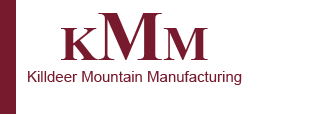JOB SUMMARY
- The Senior Quality Manager (SQM) position is responsible for establishing a corporate QA system and team that promotes customer satisfaction and that positively impacts the financial performance of KMM. Champions continuous improvement efforts and defect reduction initiatives to establish an effective Quality Management System (QMS). Assures quality products and processes by establishing and enforcing quality standards and product requirements.
ESSENTIAL JOB FUNCTIONS
- Quality Assurance Management
- Build, direct and retain a team responsible for the assuring the quality of product and customer satisfaction.
- Define and administer QA management policies and systems.
- Manage a QMS for all KMM facilities, develop and monitor QA programs throughout KMM, its programs, departments and facilities. Evaluate and continuously improve QA processes.
- Ensure the effective implementation of internal auditing and reporting for all facilities.
- Develop and oversee quality planning and inspection methods for production processes.
- Supplier Quality Management
- Work with supply chain to establish supplier quality requirements.
- Interface with supplier and customer quality representatives on matters pertaining to quality and assure that effective corrective action is implemented.
- Develop, Establish, and Maintain Processes
- Ensure that the integrity of the QMS is maintained when changes to the QMS processes are planned and implemented.
- Manage product non-conformances to insure customer satisfaction.
- Establish quality and reliability by reviewing product and customer requirements with other members of manufacturing and quality.
- Conduct product inspection, inspection certification and delegation programs.
- Review customer requirements to define what constitutes a quality record, and the process for maintaining quality records.
- Maintain product quality documentation system by writing and updating QA procedures.
- Enforce QA policies and procedures.
- Reporting
- Prepare product and process quality reports for management by collecting, analyzing, and summarizing information and trends.
- Report regularly to management the effectiveness of: Internal Auditing, Non-conformances, Customer Satisfaction.
- Continuous Improvement
- Initiate and implement quality improvement activities as appropriate (e.g., Kaizen, Six Sigma) to raise the performance of the company’s product lines.
- Educate and train co-workers as to their impact in the quality management system (Quality Objectives).
- Conduct facility wide root-cause analysis and other problem solving activities to identify effective corrective actions and process improvements.
- Establish collection and analysis systems of statistical data to predict trends that will affect improvement of product quality.
- Identify possible errors and areas of improvement.
- Maintain professional and technical knowledge by attending educational workshops; reviewing professional publications; establishing personal networks; participating in professional societies.
- Leadership & Management
- Ensure QA staff and managers are competent on the basis of appropriate education, training, or experience.
- Develop QA budgets.
- Achieve financial objectives by preparing the QA budget, scheduling expenditures, analyzing variances, and initiating corrective actions.
- Participate in internal, customer and 3rd party quality audits.
- Manage quality control personnel on a day-to-day basis.
- Complete QA operational requirements by scheduling and assigning employees; to maximize output and efficiency.
- Innovation and Customer Satisfaction
- Interact with customers to identify opportunities to improve quality and establish feedback with manufacturing and development personnel.
- Analyze customers’ product specifications to establish efficient, cost-effective requirements for ease of manufacture and reproducibility.
- Review customer purchase orders, contracts and change requests and ensure that the necessary criteria and provisions are included in quality and process plans.
- Support concurrent engineering efforts by participating in design development projects representing QA and the customer.
- Performs other related duties and assignments as required.
EDUCATION, KNOWLEDGE, SKILLS, AND ABILITIES
- Bachelor’s degree in mechanical engineering, electrical engineering, manufacturing engineering, industrial engineering or business administration, or ten (10) years of experience in QA/QC (Quality Assurance/Quality Control) systems implementation and management.
- Preferred: Master’s degree in mechanical engineering, electrical engineering, manufacturing engineering, industrial engineering or business administration.
- Preferred: Six Sigma certification, with a proven track record of business performance improvement
- Preferred five (5) years as a CQE/CQM (Certified Quality Engineer/Certified Quality Manager).
EQUIPMENT AND MACHINERY USED
- This job operates in a clerical, office, as well as a factory setting. This role routinely uses standard office equipment such as computers, phones, photocopiers, filing cabinets and fax machines.
PHYSICAL REQUIREMENTS
- The physical demands described here are representative of those that must be met by an employee to successfully perform the essential functions of this job.
- While performing the duties of this job, the employee is regularly required to talk or hear. The employee frequently is required to stand; walk; use hands to finger, handle or feel; and reach with hands and arms.
The employee is occasionally required to sit; climb or balance; and stoop, kneel, crouch or crawl. The employee must occasionally lift and/or move up to 20 pounds. Specific vision abilities required by this job include close vision, distance vision, color vision, peripheral vision, depth perception and ability to adjust focus.
